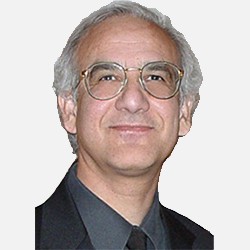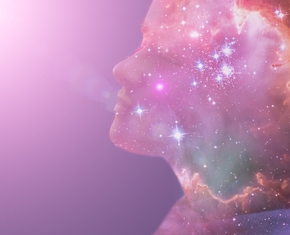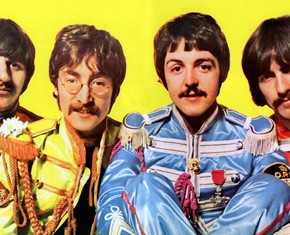The views expressed in our content reflect individual perspectives and do not represent the authoritative views of the Baha'i Faith.
This remarkable statement from his Most Holy Book offers the outline of Baha’u’llah’s unique approach to the philosophy of human ethics:
Make not your deeds as snares wherewith to entrap the object of your aspiration, and deprive not yourselves of this Ultimate Objective for which have ever yearned all such as have drawn nigh unto God. Say: The very life of all deeds is My good pleasure, and all things depend upon Mine acceptance.
The writings of Baha’u’llah are filled with ethical and moral teachings. He affirms his purpose in revealing the Baha’i Faith – to enkindle love and unity in the hearts of the people and extinguish the fire of enmity and hatred.
Baha’u’llah called for a radical new culture of intimate association and interactive communication with the entire people of the world as the foundation of unity and order in society.
His teachings reject idleness and exalt work, productivity and labor in the service of humankind. He defined humans as mines containing excellent gems, which must be actualized and discovered through education and perpetual progress and self-realization. He called for commitment to various virtues like fairness, justice, courage, independent thinking, solidarity with all humans, truthfulness and the like. He forbid causing sadness to anyone, and encouraged bringing joy to the hearts of all. His teachings say that a human being is one who dedicates himself to the service of the entire human race.
Baha’u’llah wrote “Let your vision be world-embracing, rather than confined to your own self.” In Tablets of Baha’u’llah he defined ethics in terms of the inherent nobility of human beings and said:
Were man to appreciate the greatness of his station and the loftiness of his destiny he would manifest naught save goodly character, pure deeds, and a seemly and praiseworthy conduct.
Emphasizing the imperative of unceasing self-actualization and moral progress, he advised us to:
Let each morn be better than its eve and each morrow richer than its yesterday. Man’s merit lieth in service and virtue and not in the pageantry of wealth and riches.
The writings of Baha’u’llah are filled with many such lofty moral statements, each of which requires much meditation. However, in this short reflection let’s explore the message of Baha’u’llah in his statement on morality in his Most Holy Book, and relate it to the insights of the world’s most renowned philosophers.
Beyond Kant’s Categorical Imperative
Baha’u’llah statement on morality consists of two parts. The first part offers a general moral maxim: “Make not your deeds as snares wherewith to entrap the object of your aspiration.”
In other words, he asks us not to treat our actions as a means to accomplish our selfish desires. The second part emphasizes the necessity of the recognition of Baha’u’llah and attaining the good pleasure of God as the supreme authentic end of spiritual people. From a Baha’i perspective, these two parts form the inseparable twin elements of spiritual self-realization.
Baha’u’llah mentions that human action should not be a means for attaining selfish desires. Instead, he outlines an ethical basis of behavior as universalistic, based on good will, and aiming to serve the human race and all beings. In this sense we can see that Baha’u’llah’s pronouncement has strong affinity with the famous ethical maxim of the 18th century German philosopher Immanuel Kant, who said that one should act towards others as ends in themselves rather than a mere means for one’s own ends. In Kantian philosophy, humans are members of the kingdom of ends, while nature is the kingdom of appearance. Kantian philosophy endows only humans with moral rights.
Despite their partial affinity, Baha’u’llah’s teachings depart from some aspects of Kant’s philosophy. Baha’u’llah not only affirms the spiritual nobility of each human being, he also defines all reality as reflections and manifestations of divine names and attributes. His philosophy is a philosophy of revelation, where the truth is revealed in the divine attributes of the Creator.
On the first Day of Ridvan, when he announced his revelation, Baha’u’llah spoke of God revealing all his names and attributes, at that moment, to all beings, to both humans and nature. All living beings, therefore, are endowed with moral rights.
Despite his lofty and beautiful moral statement, in his writings Kant said offensive things about women and Africans. These were common cultural prejudices of the time, and it is not surprising that he would fail to question them. Baha’u’llah’s Faith, however, announces equal rights for men and women, abolishing all prejudices, forbidding slavery, and affirming the oneness of humanity as its central principles.
Doing God’s Good Pleasure
If the end of human actions should not be rooted in selfish desires, the Baha’i teachings point out that their true goal should be attaining the pleasure of God, manifested in the recognition of the messenger of God in this age, namely Baha’u’llah. This second part of Baha’u’llah’s statement affirms the inseparable connection between the recognition of God and ethical action grounded in love.
Baha’u’llah’s Most Holy Book indeed begins by affirming the inseparable necessity of the recognition of God and goodly deeds, and synthesizes them both: “Observe My commandments, for the love of My beauty.”
Here, attraction to the beauty of God, reflected in His divinely-ordained messenger, becomes the foundation of goodly deeds. Recognition of God – the supreme truth of all reality – does not mean recognizing a specific object among all other objects. Such a recognition is an encounter with the truth of all reality – witnessing the absolute beauty. The logical requirement of such recognition is universal love and attraction to all beings as reflections of that divine beauty. Unlike Kant’s philosophy, in which love plays no role in ethical behavior, the Baha’i teachings define love as the source and meaning of all reality.
The writings of the Bab, the other prophet of the Baha’i Faith who paved the way for the coming of Baha’u’llah, extensively discuss this same issue in his own unique way. The Bab wrote that no behavior becomes a real, authentic action unless it is performed for the sake of God (Lillah). All acts must be done for God, namely for attaining the good pleasure of God. But for him, acting for the sake of God is ultimately the same as acting for the sake of God’s creation:
Be thou for God and for His creatures … Shouldst thou unlock this gate to thy heart, thou wouldst assuredly be adorned with the virtues of the All-Merciful. Then, were all the people to wrong thee, thou wouldst forgive them and, indeed, do good unto them, even as God, glorified be He, provideth, through His grace, for those who have ungratefully repudiated Him. Thus, apply the same maxim with regard to all phenomena and matters. – Summons of the Lord of Hosts
The Bab explained that acting for God requires that one acts in accordance with the pleasure of God – but that the pleasure of God is realized through the pleasure of the messenger of God sent by Him to humanity in each age.
Consequently, being “for God” requires the recognition of the prophet of the age. Like the beginning of The Most Holy Book of Baha’u’llah, good deeds and the recognition of God become inseparable from each other. This same insight is manifest in the second part of Baha’u’llah’s ethical statement. Here he defines the supreme end of humans as the attainment of the good pleasure of God, which is realized in recognition of “This Ultimate Objective”, namely accepting God’s most recent messenger:
… deprive not yourselves of this Ultimate Objective for which have ever yearned all such as have drawn nigh unto God. Say: The very life of all deeds is My good pleasure, and all things depend upon Mine acceptance.
Beyond Utilitarianism
The inseparable connection between our spiritual journey and our moral development is one of the distinguishing features of Baha’u’llah’s approach to ethics. The sanctity and beauty of all beings and all people as reflections of God forms the basis of Baha’i ethics. A materialistic philosophy which reduces humans to mere parts of nature and identifies nature as regulated by the struggle for existence presents many obstacles in defending a universal morality.
Baha’u’llah’s ethics not only have affinity with Kantian theory, they also have affinity with the rival of Kantian theory – utilitarianism. In this philosophy, happiness and pleasure are defined as the only intrinsically good things. Therefore, the most moral actions lead to the maximization of utility, happiness, and pleasure. This theory, in its immediate form, presents nothing more than a crude excuse for hedonism. However, most utilitarian philosophers go beyond that immediate assumption and argue that moral actions lead to the maximum happiness of the maximum number of people in a given society.
Although Baha’u’llah’s approach does have affinity with the idea of maximizing happiness for the maximum number of people, it departs from that philosophy in some ways, as well. As noted by John Rawls, in a prejudiced society where the majority have hatred towards minorities, discrimination against minorities could arguably lead to the maximization of happiness in that society – but of course this is not an ethical act.
So while the happiness and pleasure of people are important, from a Baha’i perspective the most important task of an ethical education involves transforming human beings so that they actualize their spiritual potential, see everyone and everything as noble, identify themselves and their personal happiness with the interests of the entire human race, and move towards a society in which the contentment and happiness of people is accompanied by assurance, tranquility, and peace of the heart. This good will for others exalts the station of human beings, helps them realize their spiritual nobility, and advances their progressive development. In an astonishing statement Baha’u’llah discusses all these three elements – assurance of the heart, contentment of people, and exaltation of the human station – as the necessary conditions of an acceptable and moral life:
“Whatsoever instilleth assurance into the hearts of men, whatsoever exalteth their station or promoteth their contentment, is acceptable in the sight of God. How lofty is the station which man, if he but choose to fulfill his high destiny, can attain!” – Gleanings from the Writings of Baha’u’llah.
You May Also Like
Comments

















Dr. Nader Saiedi did exactly that, and also Philosophy, and other sciences, of course.
Thank you Dr. Saiedi for helping us to see the writings with more mature eyes and for enhancing our understanding.